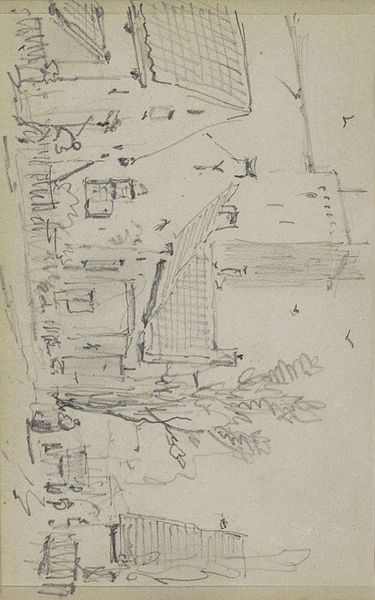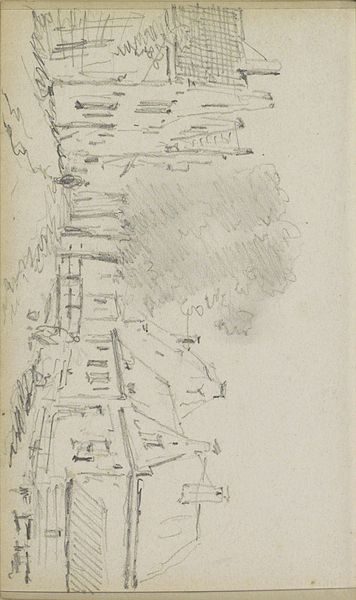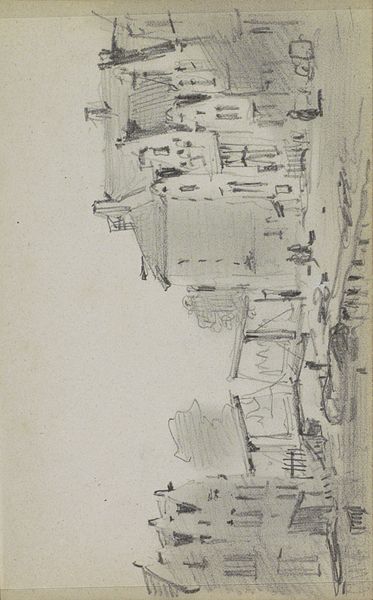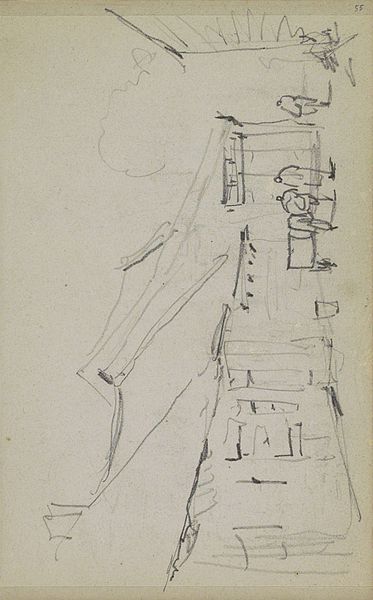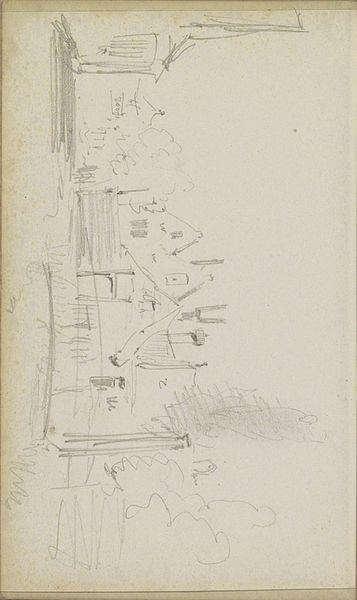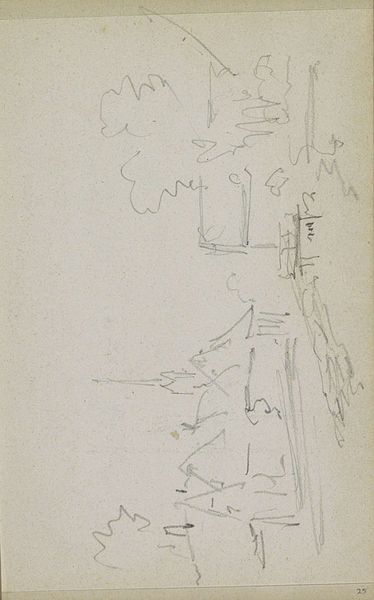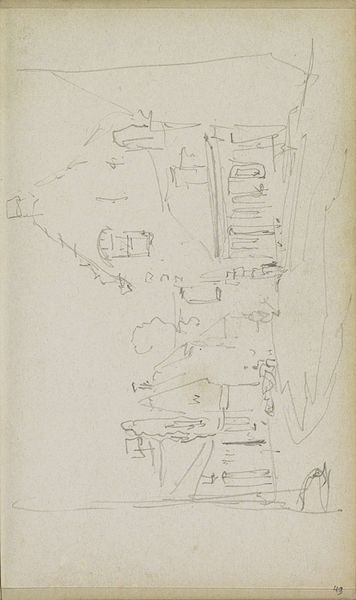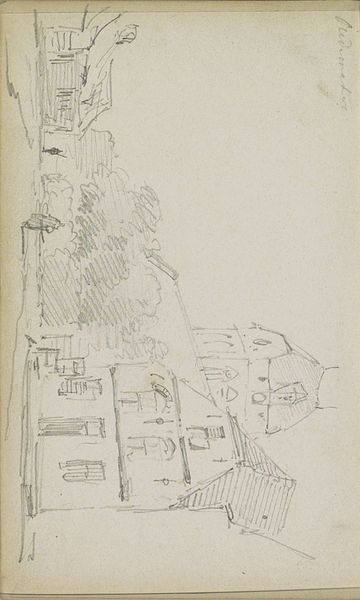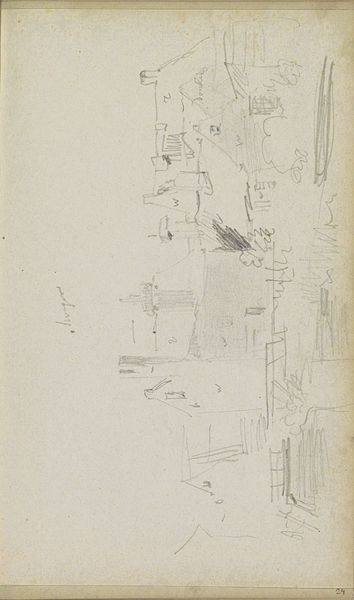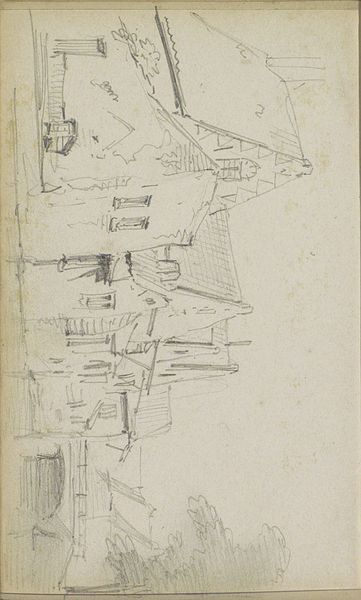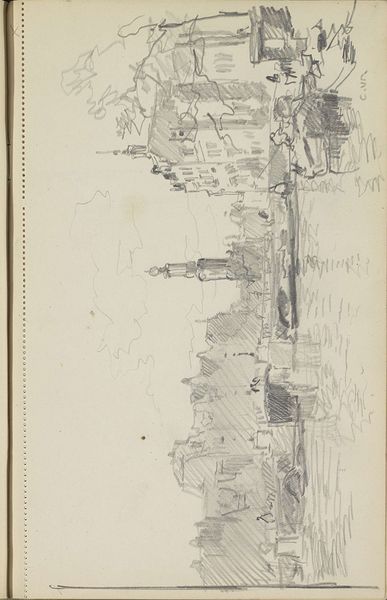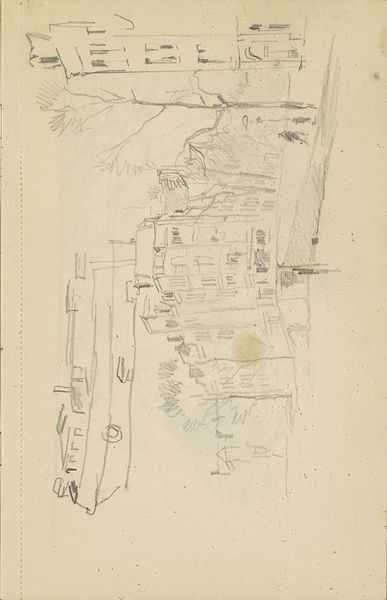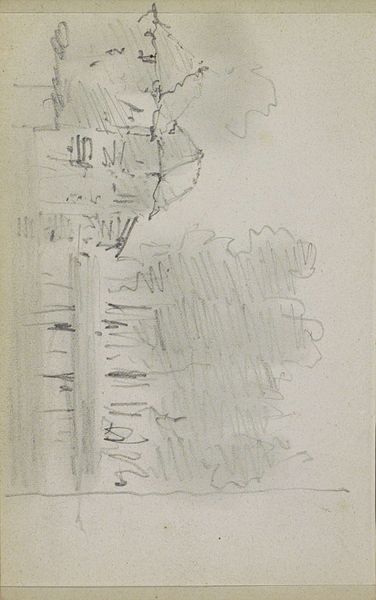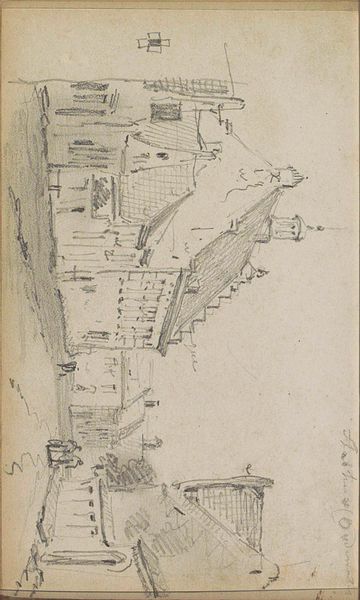
drawing, pencil
#
architectural sketch
#
drawing
#
amateur sketch
#
dutch-golden-age
#
sketch book
#
incomplete sketchy
#
hand drawn type
#
personal sketchbook
#
sketchwork
#
detailed observational sketch
#
pencil
#
square
#
line
#
cityscape
#
storyboard and sketchbook work
#
street
#
realism
#
initial sketch
Copyright: Rijks Museum: Open Domain
Editor: Here we have a pencil drawing by Adrianus Eversen, likely from sometime between 1828 and 1897. It's titled "Gezicht op gebouwen aan een straat of plein," which translates to "View of buildings on a street or square." It has an almost dreamlike, unfinished quality, like a memory fading at the edges. What strikes you most when you look at this sketch? Curator: The beauty of a sketch lies in its potential. The visible underlying marks become a key to understanding the artist’s mind, how they constructed the image, which details were prioritised. For me, architectural sketches like this often become palimpsests. Consider, even at the time, how buildings represent civic pride, individual aspiration. How might subsequent generations view these places? What narratives are layered upon the original structure? Editor: So, you're saying the image becomes more than just a depiction of a place; it accumulates meaning over time? Curator: Precisely. The linear quality evokes earlier architectural drawings, but rendered in a loose hand. Each line is pregnant with intention and history. There’s a certain visual shorthand used here, repeated windows and squares. It makes me wonder about Eversen's connection to this place. Is it a nostalgic portrayal, or a critical observation? What emotional ties does this street corner hold? Editor: That makes me see it differently. I was focused on the simple, almost fleeting quality, but now I see the potential for deeper symbolic meaning within each architectural detail. It’s a glimpse into a past that continues to shape the present. Curator: Indeed. By looking closely at these kinds of architectural symbols, we unlock stories of the past – stories embedded in stone and brick, rendered visible through the artist's hand. I find I see my own life experiences when encountering cityscapes in art. It reveals so much about continuity and change in the human experience.
Comments
No comments
Be the first to comment and join the conversation on the ultimate creative platform.
